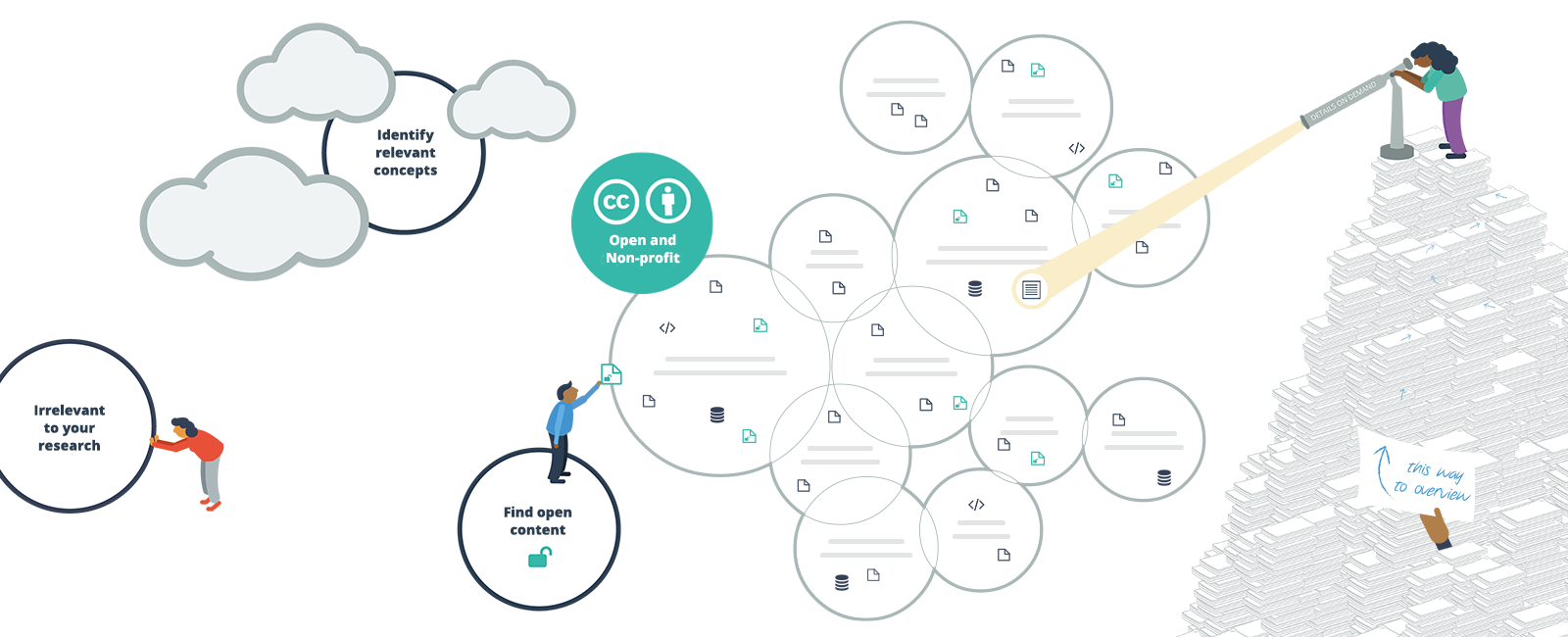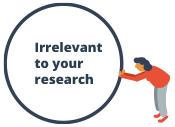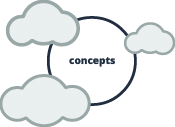- Open Knowledge Maps
- Your guide to scientific knowledge
is to revolutionise discovery of scientific knowledge. We are building an AI-based visual interface that dramatically increases the visibility of research findings for science and society alike. We are a charitable non-profit organization and we believe that a better way to explore and discover scientific knowledge will benefit us all.


Get an overview of a research topic: knowledge maps provide an instant overview of a topic by showing the main areas at a glance, and documents related to each area. This makes it possible to easily identify useful, pertinent information.

Separate the wheat from the chaff: our AI pipeline clusters similar documents together. This makes it easier to identify relevant content when you are searching for an ambiguous term, or when you would like to identify content from a single discipline in a multidisciplinary field.

Identify relevant concepts with the help of AI: one of the most difficult tasks when you are new in a research field is to learn the “language” of the field. Open Knowledge Maps makes it easier for you by labelling research areas with relevant concepts.

Find open content: our knowledge maps include both closed and open access documents. However we highlight open access documents - and the majority of those documents can be read from within the interface. And if not, the fulltext is only a click away.
1

A Knowledge Map presents you with a topical overview for your search query based on the most relevant documents matching your query.
2

We operate an artificial intelligence (AI) pipeline to create the knowledge maps. The pipeline combines natural language processing methods to aggregate and display publications according to similarity in topics.
3

The visualization is intended to give you a head start on your scholarly search. You can identify relevant areas at a glance and documents related to them.
... we want to turn discovery into an open and collaborative process. By sharing the results of our discoveries, we can save valuable time and build on top of each other's knowledge. Watch the video below to find out what this could look like:
In order to realize our vision we propose to fund Open Knowledge Maps in a collective effort. We invite organizations to become supporting members.
We propose to fund Open Knowledge Maps in a collective effort. Organizations are invited to become supporting members and co-create the platform with us.
The OKMaps Custom Services are an additional offering for organisations that would like to embed our AI-based services in their own systems and workflows. A wide range of data sources, use cases and features are available to support different needs.
Would you like to introduce Open Knowledge Maps to your community? We put together a workshop kit that makes it easy to introduce the tool to your peers.
Check out our open source visualization framework Headstart on Github.
Find out more about how Open Knowledge Maps works in 027.7 Journal for Library Culture.